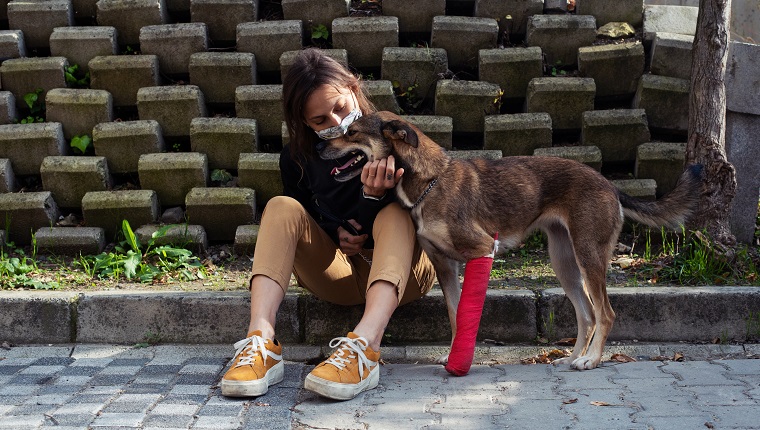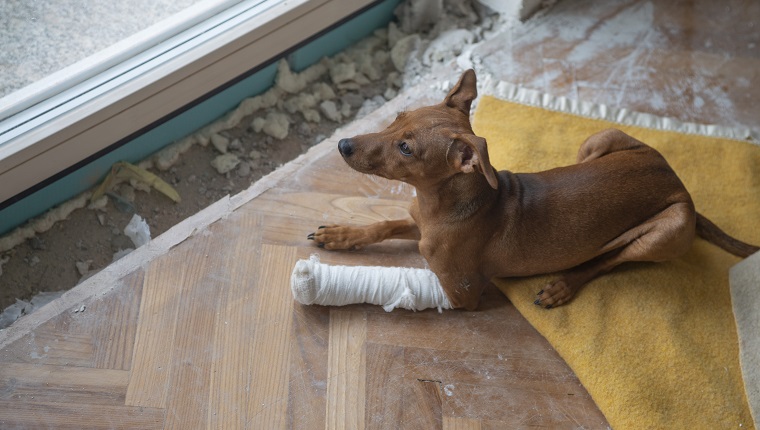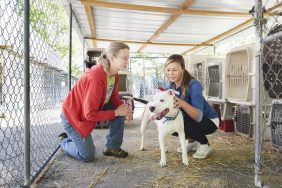Fractures in dogs occur when one or more bones are broken. They usually come about after the dog experiences physical trauma, such as from a car accident or fall.
Fractures can cause dogs to suffer from mobility issues and pain. Some of the most commonly fractured bones include the pelvis, the jaw and the femur.
If you see signs that your dog might have a fracture, then you must consult your veterinarian for a proper diagnosis and course of treatment. Here’s what you should know about the symptoms, causes, and treatments of fractures in dogs.
Symptoms Of Fractures In Dogs
Fractures in dogs produce symptoms that are often related to mobility.
Some of the most common symptoms include:
- Lameness
- Swelling
- Attempting to hold the fractured limb up
- Limping
Additionally, when a dog experiences a bad fracture, it might also cause internal complications, which you will need a veterinarian to diagnose.
Causes Of Fractures In Dogs

Fractures in dogs usually result from trauma caused by an impact.
Some of the most frequent ways dogs experience fractures include:
- Being involved in a traffic accident
- Falling from a significant height
- Being stepped on (especially for small dogs)
Treatments For Fractures In Dogs
If your veterinarian suspects your dog has one or more fractures, they’ll carry out a full physical examination. They will also look for signs of any internal issues that might have occurred and use an X-ray to determine the extent of any bone breakage.
Depending on the location and severity of the fracture, a dog might require surgery to correct it. Vets may use metal pins and plates along with casts and splints to help bones recover. They will also usually prescribe pain medication to help with the recovery process.
The vet will usually advise keeping the dog in a small crate when they return home so that their injuries can heal properly and not get aggravated by excessive movement. Vets may also suggest physiotherapy to help a dog recovering from a fracture.
Has your dog ever suffered from a fracture? What did your vet do to help them heal? Tell us all about it in the comments below!







